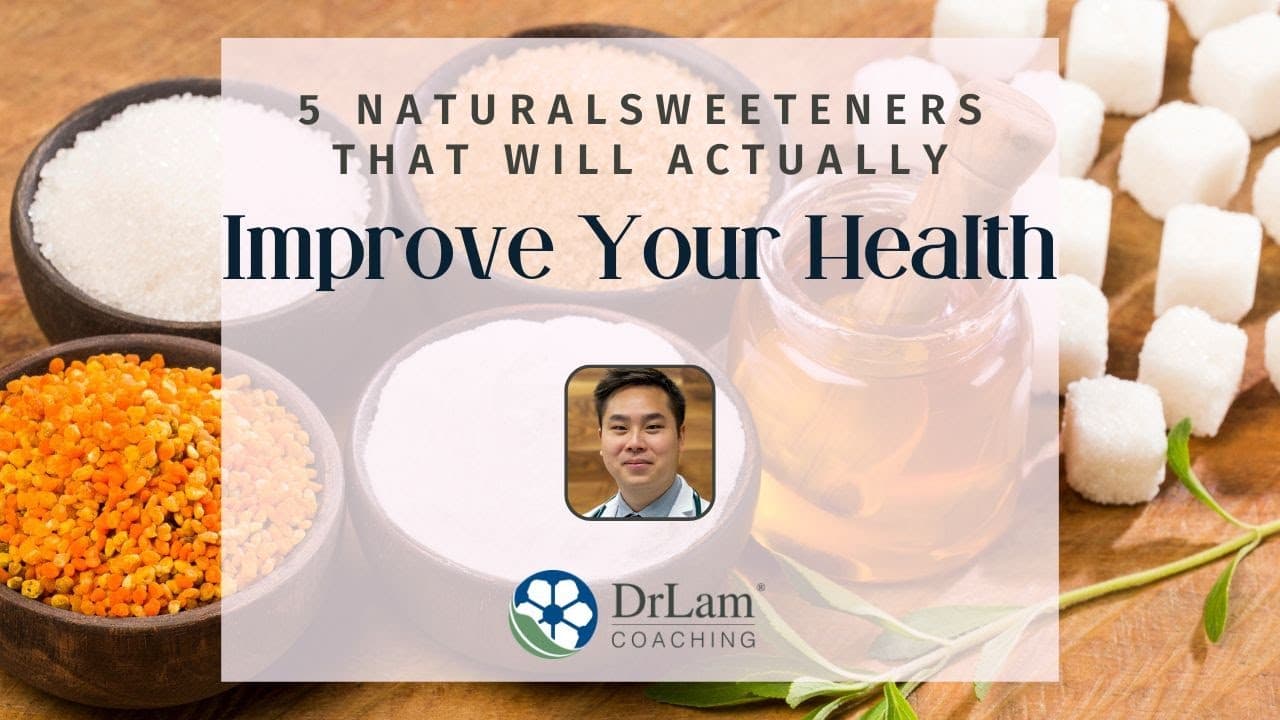
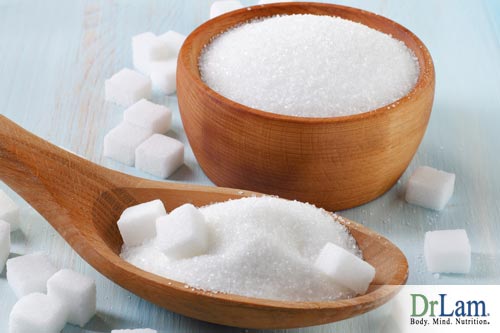 Sugar has become a buzzword regarding the Western lifestyle, and there is a constant debate about which are unhealthy and healthy sweeteners.
Sugar has become a buzzword regarding the Western lifestyle, and there is a constant debate about which are unhealthy and healthy sweeteners.
Most people are able to consume sugar in small amounts with no problems. However, alternatives are needed by many people who experience negative effects from sugar, including those who are diabetic, insulin resistant, or suffer from Adrenal Fatigue.
There is a wide variety of sweeteners available on the market that can be used to substitute sugar. These sweeteners are often used in prepared food and bottled or canned beverages. Some of them are healthy sweeteners, but many are not so healthy. Some are natural, while others are artificial. Yet these terms can be confusing and misused: what should be considered a ‘healthy sweetener’ often depends on whether an individual has any conditions that affect how their body reacts to sugar or other sweeteners. To add to the confusion, while some manufacturers promote their brand as ‘natural,’ their products are often either processed or refined, as is the case with certain stevia products. Certain artificial sweeteners, on the other hand, are actually produced from a natural substance such as sucralose, which is derived from sugar.
 Artificial sweeteners are, in essence, synthetic substitutes for sugar, although they may be derived from a natural sugar source. Many people use them in place of natural sugar because they have few calories and are often sweeter than sugar. They are found in much of the processed foods we consume, including dairy products, candy, beverages, canned foods, and even jellies.
Artificial sweeteners are, in essence, synthetic substitutes for sugar, although they may be derived from a natural sugar source. Many people use them in place of natural sugar because they have few calories and are often sweeter than sugar. They are found in much of the processed foods we consume, including dairy products, candy, beverages, canned foods, and even jellies.
Pro’s of Artificial Sweeteners:
Cons of Artificial Sweeteners:
Although the FDA currently recognizes artificial sweeteners as ‘Generally Regarded as Safe’ (GRAS), numerous studies have linked them to various diseases and cancer. It is likely that the results of future research could have them taken off the list and even banned in the United States.
Naturally occurring sweeteners are often seen as the healthier option. Some of these healthier sweeteners do, however, undergo considerable processing and refining. It is usually best to look for those that are unrefined.
These healthy sweeteners have a variety of uses. In addition to being used at home, they are also found in certain processed foods, where they are often described as ‘added sugars.’
Pros of Natural Sweeteners
Cons of Natural/Healthy Sweeteners
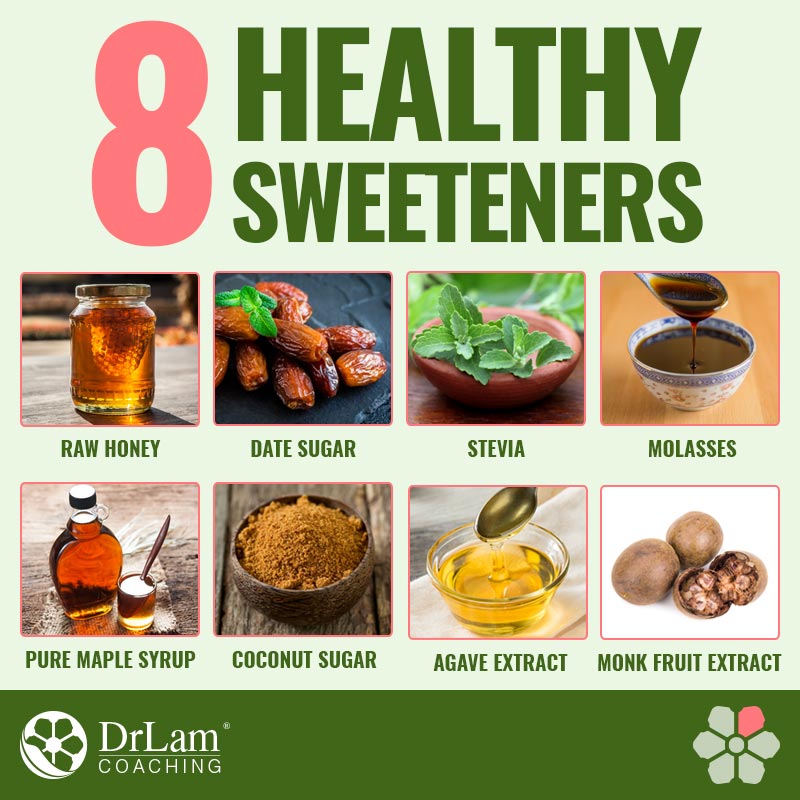
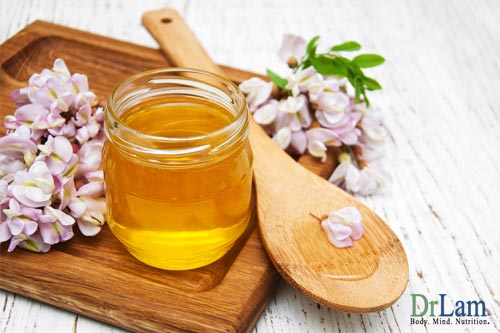 Raw honey—meaning pure, unprocessed honey—has a number of health benefits. It is high in antioxidants, gives the immune system a boost, is great for digestion, and has antibacterial properties. As it is low on the glycemic index, it will not lead to a sudden drop in energy after a few hours.
Raw honey—meaning pure, unprocessed honey—has a number of health benefits. It is high in antioxidants, gives the immune system a boost, is great for digestion, and has antibacterial properties. As it is low on the glycemic index, it will not lead to a sudden drop in energy after a few hours.
Although honey is considered a ‘healthy’ sweetener, it still should be used in moderation. It is similar to sugar also broken up into glucose and fructose. Raw honey has a higher calorie content than sugar and may contain bacterial spores that could produce the botulism toxin.
Date sugar is not, strictly speaking, a sugar at all. It is an extract from dehydrated dates. Although great for baking, it is not a good substitute for all purposes—such as your coffee–because it does not melt easily.
This healthy sweetener contains many essential minerals, such as magnesium, calcium, iron, zinc, and selenium. It also helps to maintain blood pressure, improves cognitive functions, boosts the immune system, and relieves asthma, migraines, and sore muscles.
A sweet, natural herb, stevia is considered one of the healthiest natural sweeteners out there. It is a great alternative for diabetics because it has no calories and does not affect blood sugar levels in any way.
Added benefits of this plant are that it actively helps with dental problems, stomachaches, acne problems, digestion, and dermatitis.
Many stevia-derived products, however, have additives that are questionable. The liquid form of the product is the safest option. Stevia is suitable for a wide variety of recipes.
Molasses is a by-product of refining sugar. It is considered a healthier alternative to artificial sweeteners and sugar. It is low in calories and is rich in iron, calcium, vitamin B6 and antioxidants. With these nutrients it can help prevent constipation and enhance the immune system. Molasses does however contain energy so it should be consumed in moderation. Whilst it makes an excellent substitute for sugar, it is not recommended for diabetics.
 Maple syrup can be substituted for sugar in most instances and has a number of beneficial properties. It gives the immune system a boost, promotes a healthier heart, and may lower one’s risk of prostate cancer. It is lower in calories than sugar and has more minerals than honey. It also contains enzymes that fight type-2 diabetes.
Maple syrup can be substituted for sugar in most instances and has a number of beneficial properties. It gives the immune system a boost, promotes a healthier heart, and may lower one’s risk of prostate cancer. It is lower in calories than sugar and has more minerals than honey. It also contains enzymes that fight type-2 diabetes.
Be aware, however, that many brands of maple syrup are not 100% maple syrup, but instead contain corn syrup with a maple syrup flavoring.
Coconut sugar has traces of zinc, calcium, potassium, and iron, as well as antioxidants. It also contains inulin, a type of fiber and can help to enhance gut health, can potentially help to reduce the risk of colon cancer and can slow down the absorption of glucose. It is a healthy option for baking, but not suitable as a sweetener for coffee or tea.
Another healthy alternative to sugar is agave extract, which is a syrup derived from the agave plant. It has a similar taste to honey and is low on the glycemic index. As it takes longer to be absorbed into the bloodstream, it is considered a healthier sweetening option for those who wish to lose weight. It is also thought to relieve inflammation, lower the risk of cancer, enhance one’s immune system, and help with the absorption of nutrients such as magnesium and calcium.
Most agave nectars, unfortunately, are high in fructose, which goes directly to the liver and is converted into triglycerides, which increase the risk of heart disease. The high fructose levels also make it unsuitable for diabetics.
Monk fruit extract is an extract from the monk fruit, a fruit native to the south of China. It is 100 to 250 times sweeter than sugar with this sweetness surprisingly coming from antioxidants rather than the natural sugars. These antioxidants are mogrosides and can help to reduce inflammation, prevent cellular damage with studies suggesting that monk fruit extract may also inhibit cancer growth and reduce sugar levels. This extract also contains zero calories so can potentially assist in weight management.
Sugar and artificial sweeteners have links to metabolic syndrome, a condition that develops over time. It is linked to obesity, inactivity, and insulin resistance. Both sugar and artificial sweeteners cause the release of insulin and cortisol, which increases your craving for sweets while putting a strain on the adrenal glands.
Since artificial sweeteners alter your gut flora, they interfere with the digestive process, thereby causing side effects that include migraines, allergic reactions, and digestive stress. These side effects force the adrenals to work harder to compensate.
For the most part, healthy sweeteners do not have this negative effect on your metabolism, and many of them are very beneficial.
 It is not only the physical environment that puts the body in a state of stress. What you eat can also play a role. Artificial sweeteners, unfortunately, put significant stress on the body. Much of the stress that we face on a daily basis is dealt with by the hypothalamic-pituitary-adrenal (HPA) hormonal axis, a component of the overall NeuroEndoMetabolic (NEM) stress response. When your body is functioning optimally, the adrenal glands can cope with stress-related events, but when subjected to a prolonged period of stress, the adrenals can be overwhelmed. This is what is known Adrenal Fatigue. When this happens, the adrenal glands produce less cortisol. Complications such as brain fog, food sensitivities, hypersensitivity to certain medications, and even paradoxical reactions can occur once the third or fourth stage of Adrenal Fatigue sets in.
It is not only the physical environment that puts the body in a state of stress. What you eat can also play a role. Artificial sweeteners, unfortunately, put significant stress on the body. Much of the stress that we face on a daily basis is dealt with by the hypothalamic-pituitary-adrenal (HPA) hormonal axis, a component of the overall NeuroEndoMetabolic (NEM) stress response. When your body is functioning optimally, the adrenal glands can cope with stress-related events, but when subjected to a prolonged period of stress, the adrenals can be overwhelmed. This is what is known Adrenal Fatigue. When this happens, the adrenal glands produce less cortisol. Complications such as brain fog, food sensitivities, hypersensitivity to certain medications, and even paradoxical reactions can occur once the third or fourth stage of Adrenal Fatigue sets in.
Additionally, the metabolic system can be weakened, causing an imbalance of the microbiome, a slowing of the detoxification process, and a reduced delivery of nutrients that causes cellular respiration to be ineffective. As a result, the chemical reactions that form the HPA axis need to be carried out via other pathways to maintain bodily functions.
Your body responds to stress in a global fashion, meaning that when the body is under great stress, it is not only the neuroendocrine system that responds, but the primary organ systems as well. They work together as an entirety, known as the NeuroEndoMetabolic stress response system, in order to address a problem. Therefore, whatever happens in one organ affects all the other components on the NEM system. When one or more of these components is affected to such an extent that it no longer works as it should, the entire system begins to malfunction. This is why Adrenal Fatigue sufferers often have sugar cravings: their bodies have trouble maintaining healthy blood sugar levels.
Irregular blood sugar levels can also be caused by a lack of appropriate cortisol production—another symptom of Adrenal Fatigue. Cortisol is a glucocorticoid, meaning that part of its function is to help regulate glucose in your blood. Adrenal Fatigue results in low cortisol levels and thus difficulty in maintaining normal blood sugar.
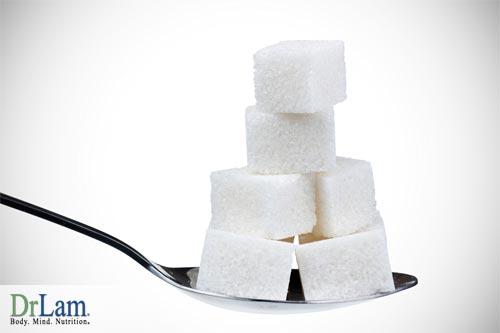 One of the easiest ways to increase your blood sugar is, that’s right, eating sugar. Eating sugary foods, however, is not a recommended method of increasing your blood sugar levels if you have Adrenal Fatigue. It causes a quick spike in your blood sugar levels, but will rapidly fall again, leading to reactive hypoglycemia and fatigue. Natural, healthy sweeteners are better alternatives for those with Adrenal Fatigue. Always use protein and fat to balance the amount of sugar needed to fuel your metabolism: the exact optimal ratio of carbohydrates to protein to fat varies from person to person and is highly dependent on what stage of Adrenal Fatigue you are in. For example, those in a catabolic state typical of late stages of Adrenal Fatigue will have very different needs from those in earlier stages. The more advanced the condition, the more vulnerable you will be. Always consult a health professional with knowledge of Adrenal Fatigue for general dietary advice. Such dietary changes, including the use of healthy sweeteners, will help strengthen the body, avoid adrenal crashes, and support the recovery process.
One of the easiest ways to increase your blood sugar is, that’s right, eating sugar. Eating sugary foods, however, is not a recommended method of increasing your blood sugar levels if you have Adrenal Fatigue. It causes a quick spike in your blood sugar levels, but will rapidly fall again, leading to reactive hypoglycemia and fatigue. Natural, healthy sweeteners are better alternatives for those with Adrenal Fatigue. Always use protein and fat to balance the amount of sugar needed to fuel your metabolism: the exact optimal ratio of carbohydrates to protein to fat varies from person to person and is highly dependent on what stage of Adrenal Fatigue you are in. For example, those in a catabolic state typical of late stages of Adrenal Fatigue will have very different needs from those in earlier stages. The more advanced the condition, the more vulnerable you will be. Always consult a health professional with knowledge of Adrenal Fatigue for general dietary advice. Such dietary changes, including the use of healthy sweeteners, will help strengthen the body, avoid adrenal crashes, and support the recovery process.
Sugar is everywhere and that's a problem because it makes things taste so good. Unfortunately, it also has some very troubling and even dangerous effects on your body and on your health overall. That's why there are so many health sweeteners on the market these days. These options often offer health benefits, but may cause their own problems. That's why you need to learn all that you can about these alternatives, so that you can make the healthiest choice for your body. If you're concerned about your sugar intake, here's what to do:
Get help managing your sugar intake from our team by clicking here or calling us on +1 (626) 571-1234.
